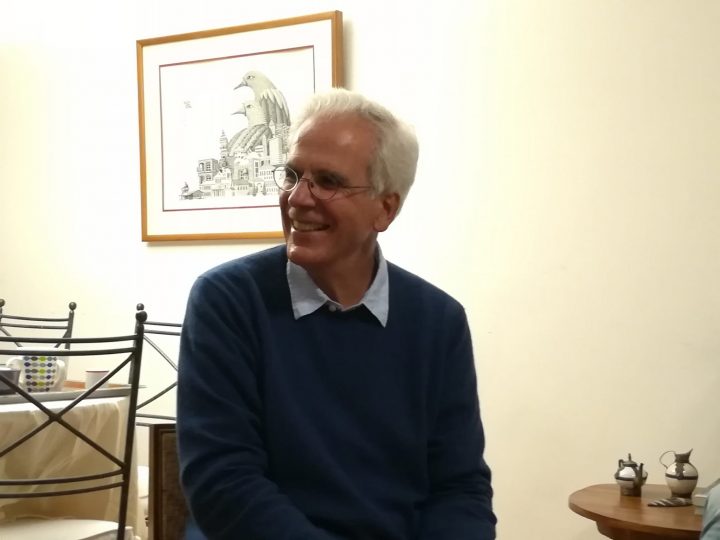We spoke at length with the French philosopher Pierre Dardot, who maintains that if one does not understand how Neoliberalism works, one cannot resist it or overcome it. That it is necessary to recognize it by permeating the different human activities, influencing far beyond the economic systems that reduce the functions of the State and cut the budgets of social policies, privatizing services and natural resources, in order to extend with their individualistic and competitive forms towards the fields of culture and even interpersonal bonds, imposing behaviors. The logic of the market extends far beyond the limits of the strictly economic sphere to become a set of practices that are expressed in all spheres of human existence. It even impregnates subjectivity and configures a lifestyle, so that the individual consider themselves as a kind of “human capital”, as a small “company” in which the rules of competition are given even against oneself. Neoliberalism today is then a form of society and even a form of existence, which brings into play our way of living, our relations with others and the way in which we represent ourselves.
Together with Christian Laval, also a French sociologist, Pierre Dardot takes up Michel Foucault’s approaches to undertake a reconstruction of history and the present, which he ends up pouring into one of his books: “The New Reason of the World”. His most recent work, already translated into Spanish and published by Gedisa, is called “Común”. In it they analyse the struggles that will proliferate from 2011 (the Spanish 15M and the camping in Plaza Sol, the phenomenon of Plaza Taksim in Istabul as well as that of the Occupy Wall Street that was installed in Zuccotti Park, etc…) in different parts of the world in synchrony and warn that there is a constant of “the common” as the factor to be rescued and on which a political alternative could be sustained for the next revolutionary form, that of the 21st century.
These practices are modes of active resistance to the logic of Neoliberalism; cooperative and collaborative forms of education, production, consumption, even habitat that arise in diverse places (agriculture, urban art or new technologies), with their special democratic practices that emerge from the struggle itself and seek to decentralize power in assemblies, active communities in formation and interrelated through the Internet and social networks. In each of these squares, because of the time in which they were occupied, the voluntary commitment managed to give itself a democratic collective practice as the only means so that individuals could live sheltered from economic pressures, mercantile pressures, competitive pressures and obsessions to have “always more”. It was the way he found himself to become authentic “democratic subjects”. In the case of Spain, once the Sol camp had been lifted, that sensitivity spread – like a skin – to many other squares, taking root in the neighbourhoods.
Regardless of what happened afterwards, in those concrete examples of what happened in the squares the future was anticipated, reaffirming that those alternative forms that are expressed in politics, economics, culture, are inseparable from the global objective that is sought and that is the radical transformation of society. This logic, this alternative rationality, is not only critical or a way of thinking of opposition, but above all it is a creative form because it poses, in practice and on each occasion in a specific way, the question of the democratic institutions that it is necessary to build in order to conduct any activity together. They call this logic the “reason for the common”.
It is a political reason and a form of conduct that is no longer based on competition, that escapes the Neoliberal lifestyle, because in it – as intangible – fraternity prevails and is sustained in the deep sense of the “common”, as a political principle, in which there is no obligation other than that which comes from sharing in deliberation and collective decision making.
If we look closely, it is a question of new practices of real democracy, of an instituting praxis, in the sense that they organize a new mode of relationship and install it. Instituting practices that surpass Neoliberalism by installing in consciences and in the social field new realities, previously unthinkable. To institute is not to create from scratch, nor is it to institutionalize. It is recognizing and giving existence to something that already exists; it is transforming what exists.
We believe that the creation of common institutions, democratic coordination without centralizing and the transformation of existing institutions, could bring us closer to a notion of “political”.
The struggle for emancipation certainly excludes the figures of strategists and elites who decide from a position of superiority the choice of means to put into practice. But it is necessary to have objectives and to design tactics. The question is how to carry out such a joint, horizontal, rooted and coordinated activity. It is necessary to break with the logic that some are the “representatives” of the people. The political organization of the future must renounce to “represent” the majority, moving to a direct democracy. Rather, it must act in favour of the practical convergence of resistances in the most diverse sectors of activity, i.e. the construction of the truly transversal “common” that comes from co-activity and co-participation.
Translated from Spanish by Pressenza London






